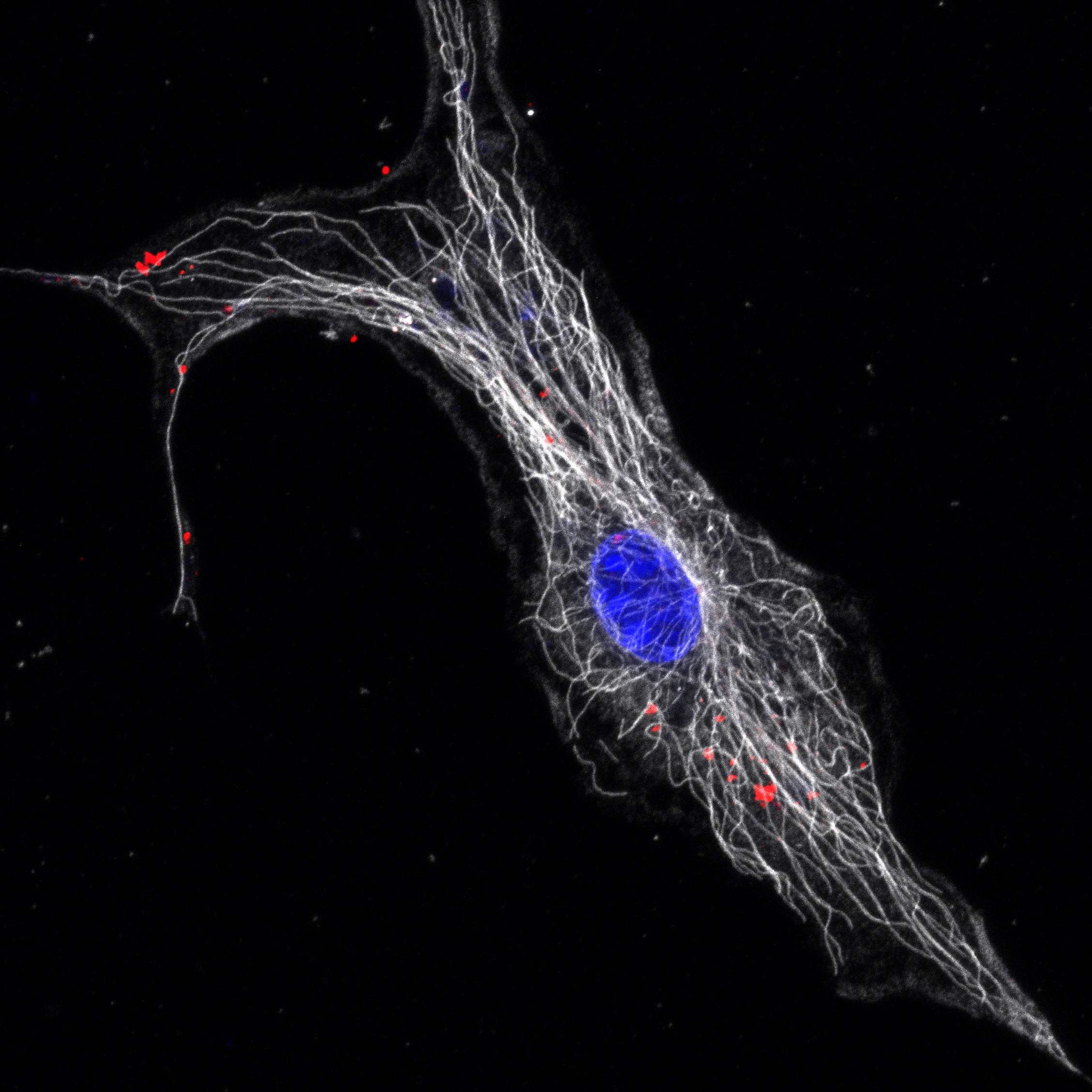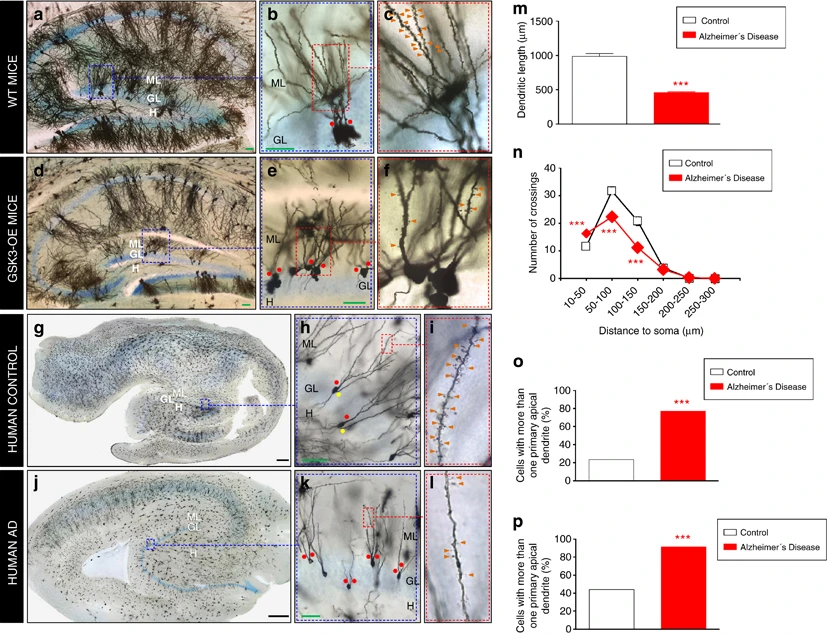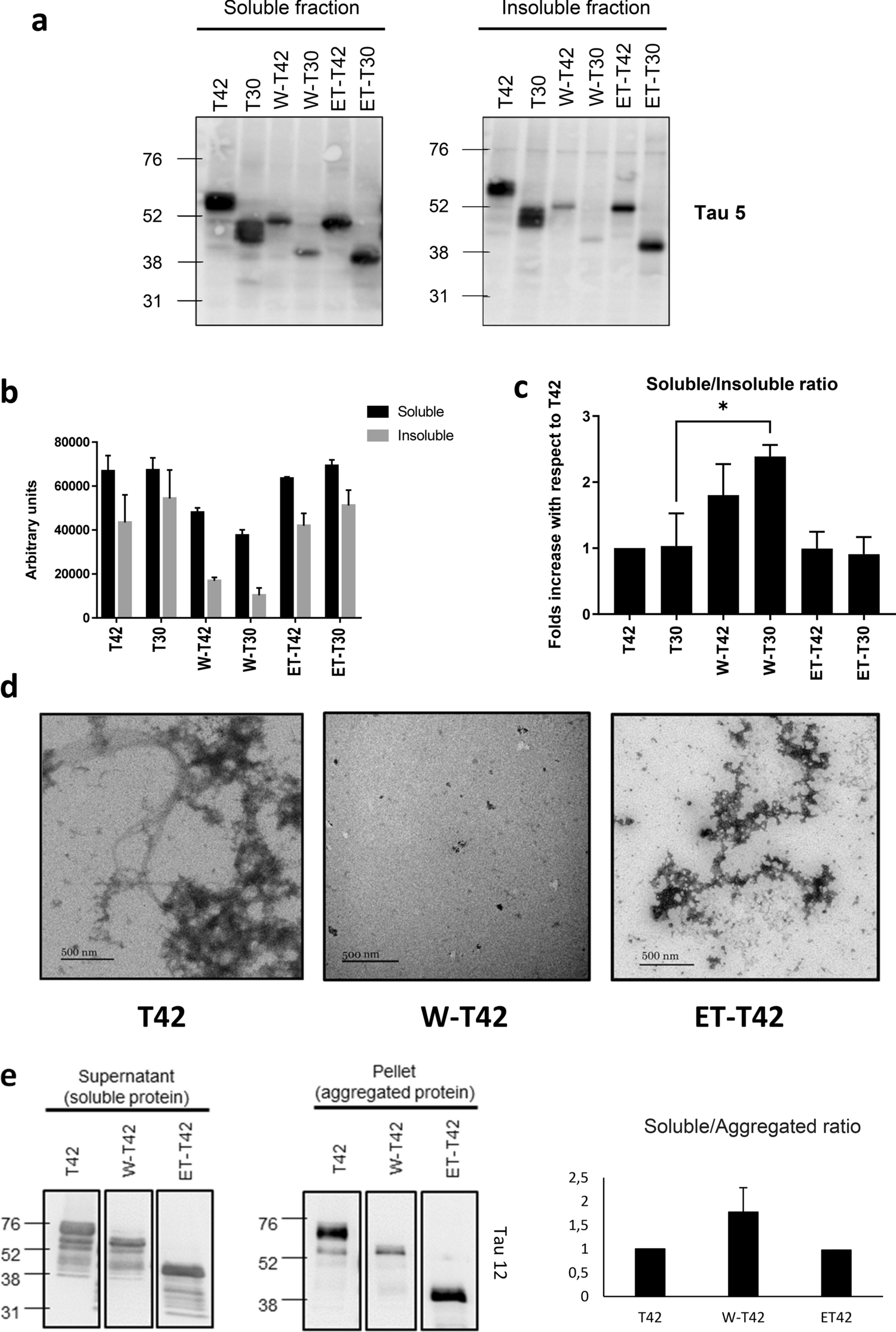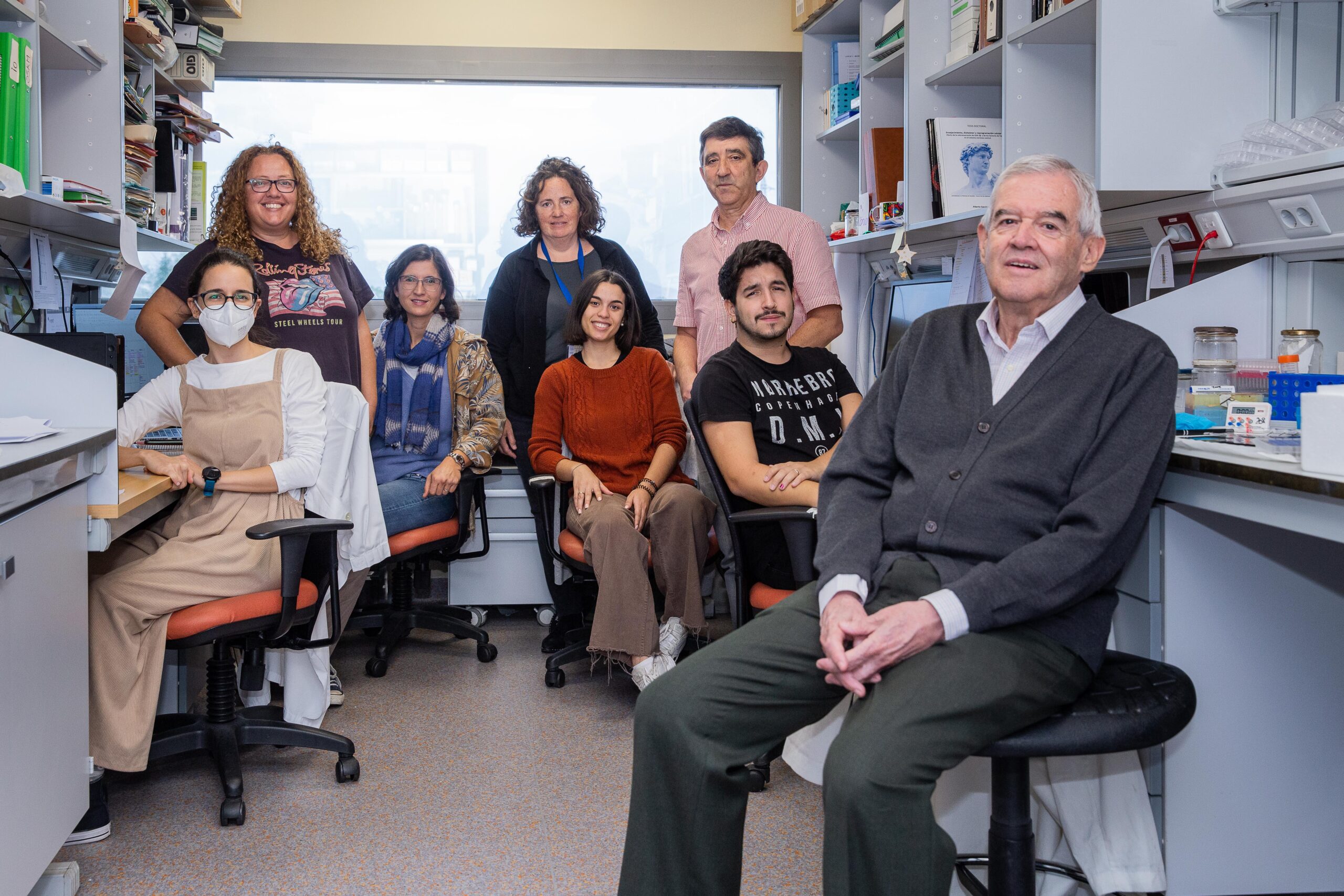Scientific Program
Physiological and pathological processes
RESEARCH GROUP
Tau function and dysfunction in Alzheimer disease
To understand the mechanisms of tau pathology in neurodegenerative processes, such as Alzheimer’s disease, with the goal of preventing their development

Research
Tau is a neuronal protein that plays a direct or indirect role in various neuronal functions. Dysfunctions in tau can lead to neurodegenerative disorders, known as tauopathies, with Alzheimer’s disease being the most significant. Tau’s functions are influenced by its subcellular localization and its binding to specific neuronal components. Our objective is to analyze these known tau functions and explore potential new ones.
We have examined the structural and functional differences between human and mouse tau proteins, focusing on an extra amino acid sequence unique to human tau, which plays a role in axonal transport of certain proteins. Additionally, we have studied the mechanism responsible for extracellular tau secretion and tau’s involvement in localizing NMDA extrasynaptic receptors. Given that tau is a phosphoprotein primarily modified by the GSK3β kinase, we have also investigated the effects of GSK3β overexpression in neuronal cells. In Dr. Hernández’s group, we analyzed tau’s presence in glial cells (oligodendrocytes, astrocytes, and microglia) and discovered that various cell surface receptors may facilitate interactions between extracellular tau and neurons or glial cells.
Our group has collaborated extensively with other research teams, both within and outside of the CBM, on topics related to Alzheimer’s disease, other neurodegenerative disorders, and aging. Regarding aging, we have documented the rejuvenation of certain aged granule neurons in the hippocampal region following expression of reprogramming (Yamanaka) factors.
Group members

Félix Hernández Pérez
Lab.: 208 Ext.: 4563
fhernandez(at)cbm.csic.es

Jesús Ávila de Grado
Lab.: 208 Ext.: 4564
javila(at)cbm.csic.es

Raquel Cuadros Catalán
Lab.: 208 Ext.: 4592
rcuadros(at)cbm.csic.es

Vega García-Escudero Barreras
Lab.: 208 Ext.: 4592
vescudero(at)cbm.csic.es

Nuria de la Torre Alonso
Lab.: 208 Ext.: 4803
ndelatorre(at)cbm.csic.es

María José Pérez Alvarez
Lab.: 208 Ext.: 4592

Gerardo Martín López
Lab.: 208 Ext.: 4552

Paula Ramírez Mallavibarrena
Lab.: 208 Ext.: 4592

Indalo Domene Serrano
Lab.: 208 Ext.: 4592

Francisco Vallejo Bedia
Lab.: 208 Ext.: 9542
Selected publications
Involvement of the carboxyl-terminal domain of tubulin in the regulation of its assembly.
L Serrano et al.

Decreased nuclear β‐catenin, tau hyperphosphorylation and neurodegeneration in GSK‐3β conditional transgenic mice
José J. Lucas et al.

GSK-3β overexpression causes reversible alterations on postsynaptic densities and dendritic morphology of hippocampal granule neurons in vivo
M Llorens-Martín et al.

A new non-aggregative splicing isoform of human Tau is decreased in Alzheimer’s disease
Vega García-Escudero et al.





